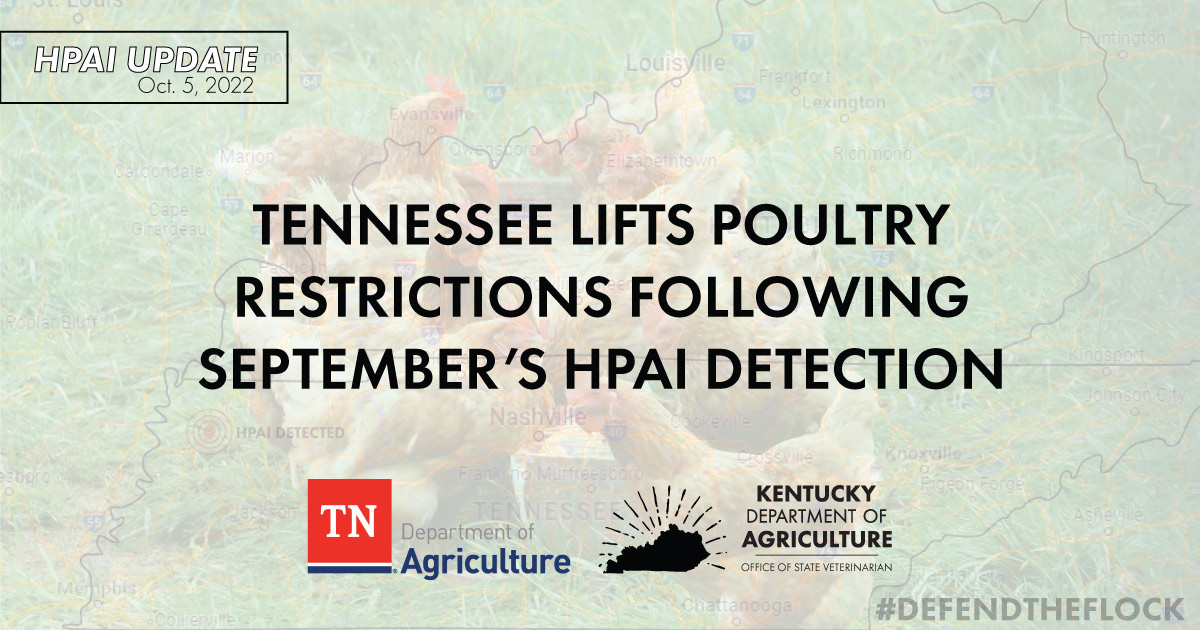
OCT
Tennessee state veterinarian lifts poultry restrictions after HPAI detection
Detection near Kentucky border, initiated Kentucky response plan
NASHVILLE (Oct. 5, 2022) - The Tennessee State Veterinarian is lifting statewide poultry restrictions following the detection of highly pathogenic avian influenza (HPAI) last month in a backyard flock in Obion County, Tenn.
HPAI was confirmed in a backyard flock of poultry in Obion County on Sept. 15. The disease is known to be deadly for domesticated fowl. Although the affected site remains under quarantine, movement permits are no longer required for poultry moving into or out of the control zone of 10 km (6.2 miles) surrounding the site. Due to the proximity of the detection to the Kentucky state border, the control zone extended partly into Kentucky.
Poultry shows, exhibitions, and sales can now also resume statewide. However, poultry owners are reminded to maintain strong biosecurity procedures, remain vigilant, and report signs of illness in their birds.
“The coordinated response to stop the spread of HPAI in this area worked, but we can’t let our guard down,” Tennessee State Veterinarian Dr. Samantha Beaty said. “We are grateful to our animal health technicians, the poultry industry, backyard flock owners, and our partners for working together to protect our state’s birds. Still, HPAI is highly transmissible and we strongly encourage poultry owners to continue doing all they can to ensure good health in their flocks.”
Although HPAI does not pose a food safety risk, no infected poultry are ever allowed to enter the food supply. Poultry and eggs are safe to eat when handled and cooked properly. The risk of human infection with avian influenza during poultry outbreaks is very low. In fact, no transmission to humans was reported during the outbreak that affected commercial poultry farms in Tennessee in 2017.
Owners of backyard and commercial poultry flocks are encouraged to:
- -- Closely observe domesticated birds and report a sudden increase in the number of sick birds or bird deaths to the Tennessee State Veterinarian’s office at 615- 837-5120. Or, in Tennessee or Kentucky, you can report to USDA at 1-866-536-7593.
- -- Prevent contact with wild birds.
- -- Practice good biosecurity with your poultry. More information can be found online at http://healthybirds.aphis.usda.gov/.
- -- Enroll in the National Poultry Improvement Plan (www.poultryimprovement.org), the Secure Broiler Supply Plan (www.securebroilersupply.com), and the Secure Egg Supply Plan (www.secureeggsupply.com) as appropriate for your operation.
Information about Tennessee’s response to avian influenza and resources can be found online at www.tn.gov/agriculture/businesses/animals/animal-health/avian-influenza.html.
Information about Kentucky's response can be found online at www.kyagr.com/HPAI.

